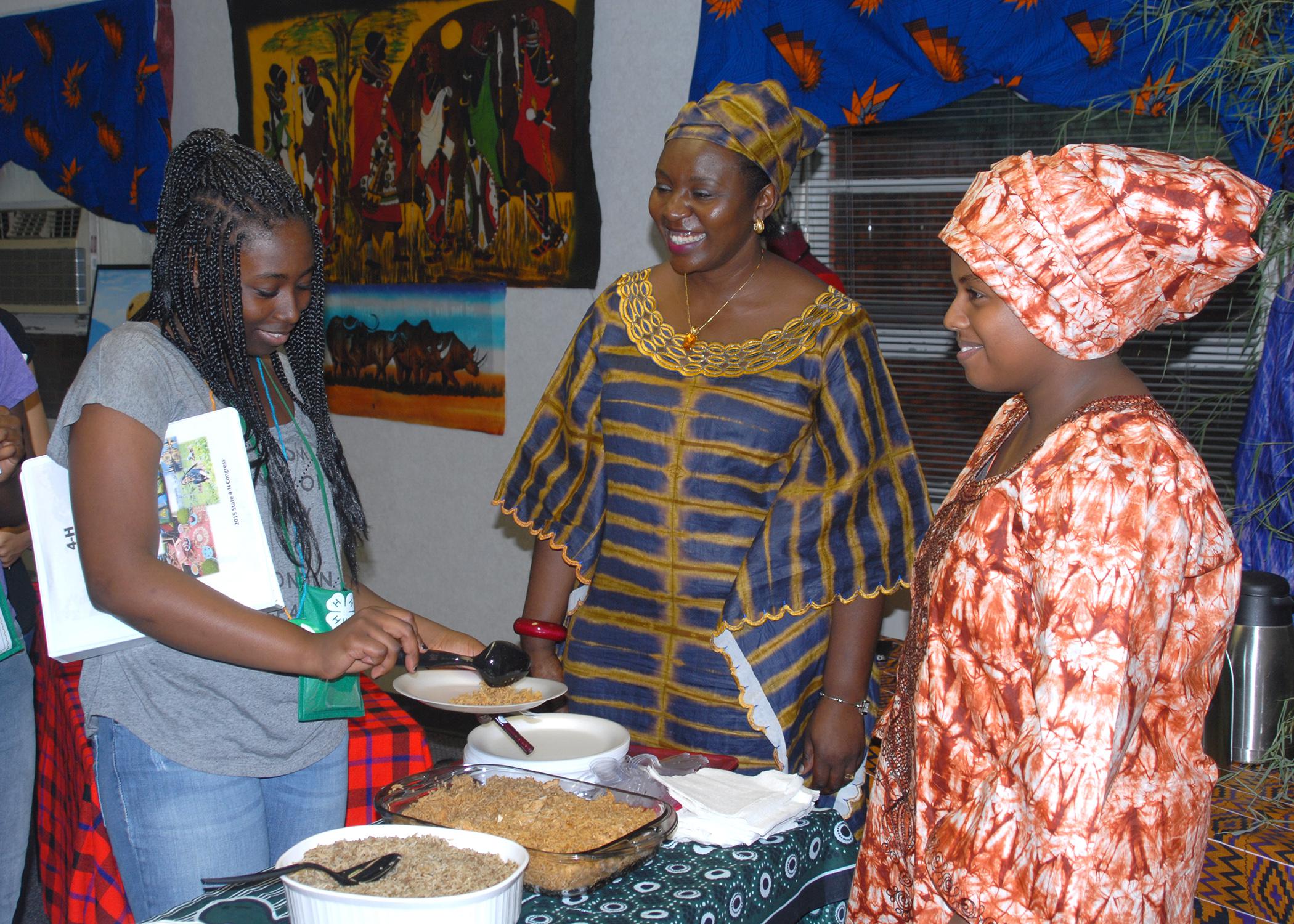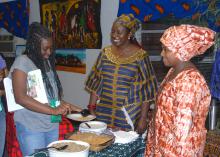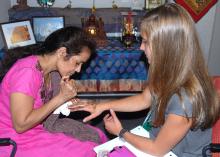Information Possibly Outdated
The information presented on this page was originally released on May 29, 2015. It may not be outdated, but please search our site for more current information. If you plan to quote or reference this information in a publication, please check with the Extension specialist or author before proceeding.
4-H members tour 3 countries without leaving MSU campus
STARKVILLE, Miss. -- Mississippi 4-H members received an important lesson about the pledge they make to improve their world.
About 50 of the youths taking part in the State 4-H Congress “toured” Kenya, India and Japan without leaving the Mississippi State University campus on May 27. Representatives from those countries hosted tour groups in three rooms, each outfitted with items from those countries and samples of authentic foods.
Susan Seal, assistant professor of international agricultural and Extension education, said 4-H members in the United States and in other countries are more alike than different.
“This is to engage our youth in the diverse cultures of our global society. We have many internationals living in the United States, even right here in Mississippi,” Seal said. “We want the participants to realize that what happens in other countries impacts us here in the United States.”
Seal pointed out that the 4-H pledge includes commitments for 4-H’ers to their clubs, communities, country and world. She is spreading international curriculum to 4-H clubs across the state.
“Many of these 4-H’ers have never traveled far from home. We would love for them to not only consider traveling, but studying abroad,” she said. “We hope this will trigger an interest in studying about other countries and sharing what they learn with other people in their communities. We want them to be open to communicating with people from other cultures.”
In the room for Kenya, the students heard from Caroline Kobia, an instructor in the MSU School of Human Sciences. She explained Kenya’s diversity, which includes the fact that there are as many as 50 languages spoken in the country.
“British English and Swahili are the two common languages, but then there are many different dialects across the country,” she said.
Kobia and other representatives wore traditional African dresses and offered the students a sampling of food and tea from Kenya.
Down the hall in the room for India, some students chose to get a temporary henna tattoo on their hands or arms.
Bhupinder Singh, an MSU graduate student studying agriculture, said he enjoyed watching the students sample Indian foods and admire the traditional clothing.
“They seemed surprised we also speak English,” he said.
Students removed their shoes to enter the third room, which focused on Japan.
Chieko Iwata hosted the students and described the different types of tea that are enjoyed in Japan. She passed around cups of green tea as well as rice cakes.
Winston County 4-H member Dylan Castle, a self-described homebody, said he enjoyed hearing about the other countries.





